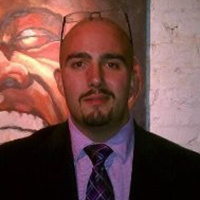 Edgard White Collar Crime Lawyers, Louisiana
Edgard White Collar Crime Lawyers, Louisiana
Sponsored Law Firm
-
 x
x

Click For More Info:
-
The Law Offices of Richard L. Cooper, P.A.
848 Brickell Avenue Suite 800 Miami, FL 33131» view mapDWI/DUI, Drug Trafficking, Felony Nationally Ranked Top 40 Under 40
With Richard L. Cooper you can expect a trusted confidant who will work diligently to fully understand your case and determine a road map to help you regain control of your life.
800-756-2781
Sponsored Lawyers
1-9 of 9 matches
Criminal, Felony, Misdemeanor, White Collar Crime, Juvenile Law
Criminal Court is a place where someone's life can be irrevocably changed for the worse. I have born witness to incredible injustice being done to innocent people. I have also seen a person sacrificed and thrown away by the system without being given any chance at redemption. Seeing these stories play out is what drives me as a defense attorney, to protect people from being crushed by the system.
(more)



 Richard L. Cooper Miami, FL
Richard L. Cooper Miami, FL AboutMiami Attorney at Law
AboutMiami Attorney at Law ServicesCriminal Defense
ServicesCriminal Defense


